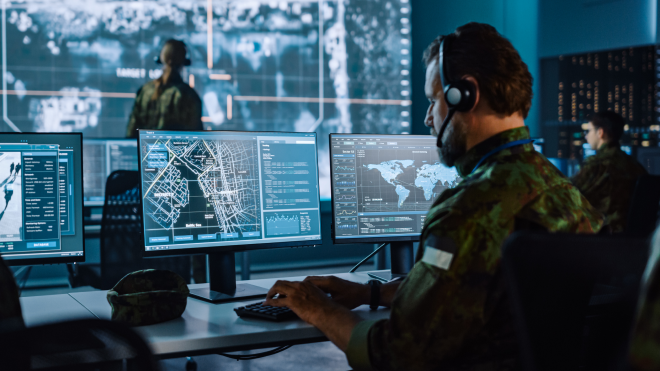
13 Sep Contemporary and emerging needs and challenges faced by security and intelligence practitioners
Security and intelligence practitioners are increasingly being challenged by contemporary and emerging technologies to accomplish their core mission of ensuring national security. They need to rapidly expand their cyber capabilities to advance in homeland security. To engage in the emerging cyber regime complex it is necessary to be actively involved in the promotion of all of the foregoing measures of cyber capabilities.
Terrorists or criminal organizations are also exploring new technologies to create new threats. Security and intelligence professionals need to be prepared to identify and respond in a timely manner to reduce the impact of the attack. To develop meaningful effects of security operations, these professionals need to be not only up to date on the latest technologies but also involved in the processes of creating global rules.
Cyber conflict is not just a matter of offensive and defensive operations, it is also about how to shape internet usage. The creation of international rules and regimes takes place at a global level, they are designed to establish implicit and explicit principles, norms, rules, and decision-making procedures to shape the use of the Internet among actors. Therefore, interaction with domestic policymakers, companies, and security and intelligence professionals is critical as they are the ones involved in conflict resolution efforts. It is necessary to create an active dialogue, exchange of capacities, and mutual learning for states to engage in effective problem-solving. Considering the effects of these measures on the global public interest.
The majority of the Internet infrastructure is privately owned, but governments play important roles in incident response and ongoing cybersecurity education. Security and intelligence professionals make especially important contributions to stabilizing the state’s rules of conduct in the cyber domain as they are actively involved in security operations. When a security operation is successfully performed, for example, they enhance the stability and interoperability of the global Internet and thereby facilitates the operation of the global cyber regime complex.
Attempts to manage new interactions on the internet and create rules of conduct for the online state are evident at the United Nations. However, it is still in the early stages of formation, as it is a complex and uncertain process, which involves many concerns and disagreements on how to unite and legitimize procedural rules that involve multistakeholder governance. The process of involving different actors, with different visions of how to perform the task, different interests, and different conceptions of justice, leads to an outcome of trial and failure.
Therefore, to minimize the negative effects of failures, it is important to involve security and intelligence practitioners so that they can offer a real vision of the conflicts faced and better communicate with the industry, academic actors, and policymakers.
Reference:
Raymond, M. (2016). Engaging Security and Intelligence Practitioners in the Emerging Cyber Regime Complex. Retrieved from JSTOR – Army Cyber Institute: https://www.jstor.org/stable/10.2307/26267361 *Engaging Security and Intelligence Practitioners in the Emerging Cyber Regime Complex (jstor.org)




